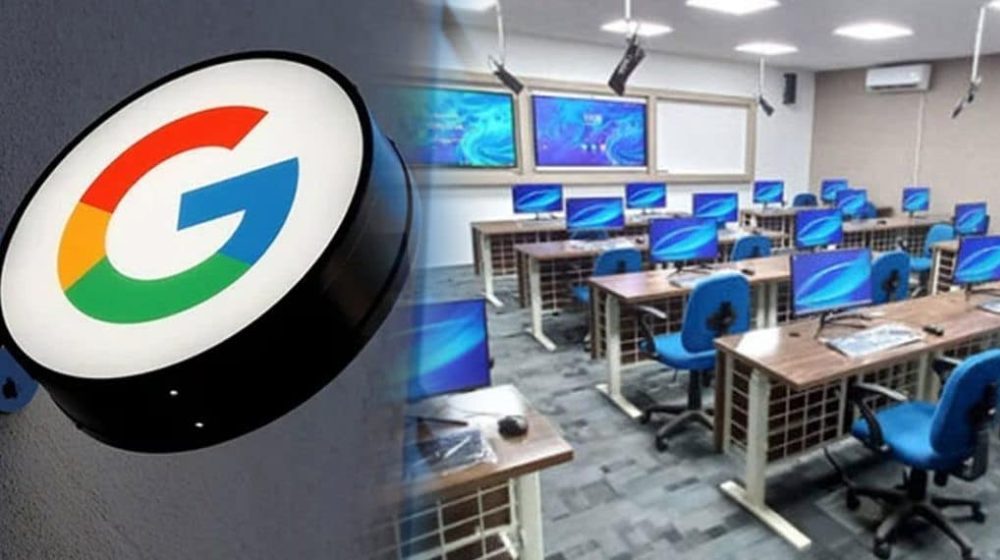Smart Classrooms Introduced in Government Schools Across Punjab

1. Introduction: A Digital Leap for Public Education in Punjab
In a bold and progressive move, the Government of Punjab has introduced smart classrooms in government schools across the state. This initiative is aimed at transforming traditional teaching methods by integrating modern technology to foster interactive and engaging learning environments. With a focus on digital empowerment, this step marks a significant milestone in bridging the education gap between private and public institutions.
2. What Are Smart Classrooms?
Smart classrooms are digitally equipped learning spaces that replace the traditional blackboard-and-chalk setup with modern educational tools. These classrooms feature:
- Interactive smart boards
- High-speed internet connectivity
- Audio-visual systems
- Projectors
- Learning Management Systems (LMS)
- Tablets or computers for both teachers and students
This integration allows teachers to use multimedia presentations, educational videos, and real-time quizzes, making lessons more dynamic and comprehensive for students.
3. The Government’s Vision and Objectives
Punjab’s education department has set forth a clear mission to enhance the quality of education and make it more relevant to the 21st century. The key objectives behind introducing smart classrooms include:
- Modernizing government schools
- Promoting digital literacy among students and teachers
- Bridging the digital divide between urban and rural education
- Boosting student engagement and academic performance
This move aligns with the broader vision of a “Smart Punjab” where governance, education, and public services embrace technology.
4. Phased Implementation Strategy
The rollout of smart classrooms is being carried out in a phased manner:
Phase 1: Infrastructure Installation
Initially, selected government schools across key districts were equipped with smart boards, projectors, and internet-enabled computer labs.
Phase 2: Teacher Training
The success of smart classrooms depends largely on the teachers. Special training modules were introduced to equip educators with digital tools and software. Teachers are now learning to use educational platforms, conduct online assessments, and manage digital content.
Phase 3: Curriculum Integration
Digital content and e-learning modules have been aligned with the school curriculum. Educational apps, NCERT-based resources, interactive videos, and animations are now part of daily classroom sessions.
5. Benefits of Smart Classrooms
The implementation of smart classrooms has led to numerous positive changes:
| Benefit | Impact |
|---|---|
| Enhanced Learning Experience | Visual aids and multimedia make complex topics easier to understand. |
| Increased Student Engagement | Interactive teaching keeps students more focused and involved. |
| Improved Academic Performance | Continuous assessments and instant feedback lead to better outcomes. |
| Teacher Empowerment | Teachers adopt innovative teaching techniques and improve productivity. |
| Accessibility | Even remote schools gain access to quality educational content. |
| Technological Awareness | Students learn how to use digital tools and resources confidently. |
6. Challenges Faced
Despite the positive strides, the initiative faces several real-world challenges:
a. Infrastructure Gaps
Some rural schools still struggle with electricity shortages and lack of internet access, making full implementation difficult.
b. Maintenance and Support
Technology often requires regular maintenance, software updates, and support—resources that some schools may lack.
c. Teacher Readiness
Not all educators are comfortable using digital tools. Continued professional development is essential to ensure effective use.
7. Government’s Solution-Oriented Approach
To overcome these challenges, the government has:
- Allocated special funds for the maintenance of digital hardware
- Introduced offline digital tools for areas with weak internet connectivity
- Launched ongoing training and support for teachers
- Partnered with edtech companies for scalable learning solutions
8. Real-World Impact and Testimonials
In districts where smart classrooms have been implemented, tangible improvements are being reported:
- Attendance rates have improved as students find lessons more engaging.
- Academic scores have increased by 15-25% in pilot schools.
- Parents are also more involved now that they can access digital progress reports and classroom activities through parent portals.
One notable case is from Government Senior Secondary School, Amritsar, where teachers observed that weak students began performing better due to video-based learning.
9. Looking Ahead: The Future of Smart Learning in Punjab
The government plans to scale the smart classroom initiative to every government school in Punjab by 2027. Upcoming developments include:
- AI-based learning tools to offer personalized education
- Integration with national digital platforms like DIKSHA
- Smart labs and virtual reality-based science experiments
- Dedicated mobile apps for students and parents to track academic progress
This educational transformation not only empowers students with knowledge but also prepares them for the tech-driven future.
10. Conclusion: A Smart Step Toward Educational Equality
By introducing smart classrooms, the Punjab government is not just upgrading infrastructure—it’s investing in the future of its children. This initiative serves as a model for other states to follow and proves that quality education, when paired with technology, can be both inclusive and impactful.
As the classrooms of Punjab go smart, so do the minds that fill them—ready to take on tomorrow.





